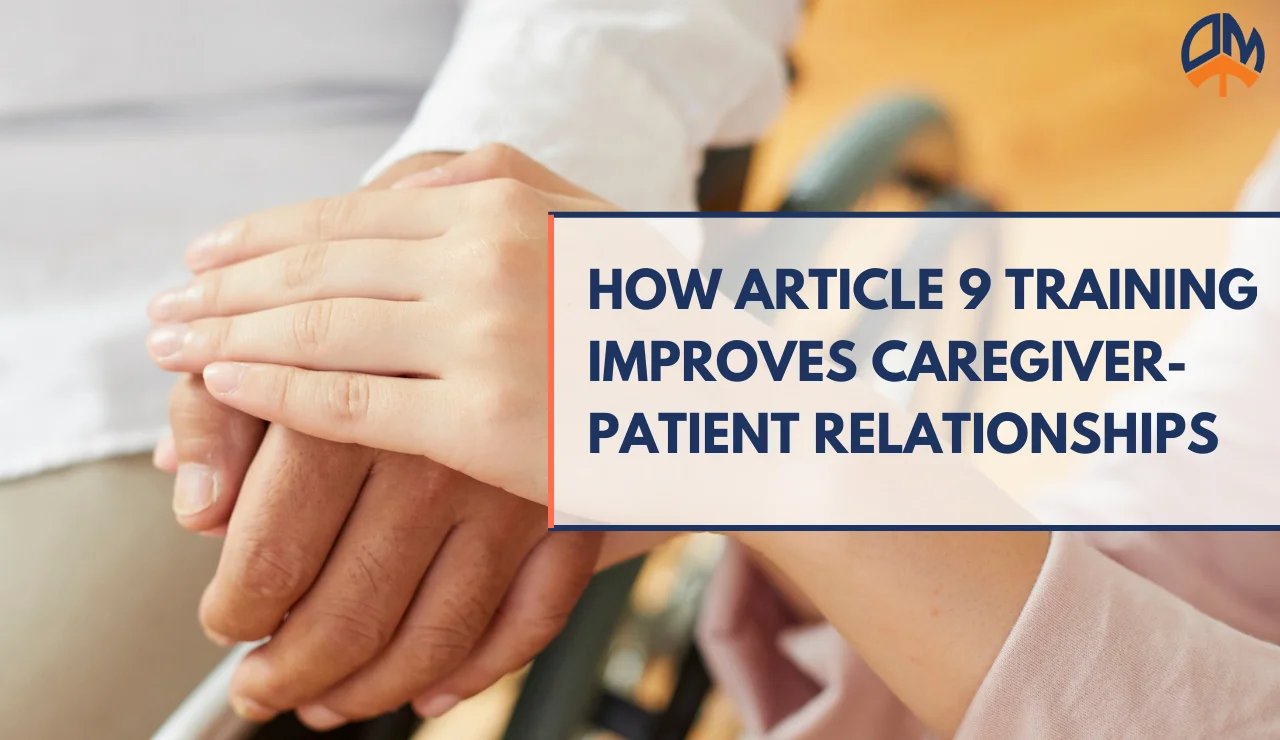In Arizona, every caregiver working with individuals with developmental disabilities is required to complete Article 9 training. At first glance, it might feel like “just another requirement.” But when you look deeper, Article 9 does more than meet state regulations—it transforms the way caregivers connect with patients.
Here’s how Article 9 certification in Mesa, AZ, improves caregiver-patient relationships and why it matters.
What Is Article 9 Training?
Article 9 refers to a section of the Arizona Administrative Code that sets the rules for how caregivers support individuals with developmental disabilities.
The training covers:
- Rights of patients receiving care
- Positive behavior support methods
- Prohibited techniques that can never be used
- Documentation and reporting of incidents
Every caregiver working through the Division of Developmental Disabilities (DDD) in Arizona must complete Article 9 training, and certification must be renewed every 3 years.
In short, it’s not just a law—it’s a framework for compassionate, respectful care.
Builds Trust Through Respect
Imagine being a patient in Mesa who depends on caregivers for daily activities. The way you’re treated matters just as much as the service itself.
Article 9 emphasizes respecting patient rights —the right to dignity, privacy, and choice. Caregivers trained under these guidelines learn how to:
- Ask before assisting with personal tasks
- Offer choices whenever possible
- Respect boundaries and cultural values
This creates trust, making patients feel valued as people, not just “cases.”
Reduces Conflict with Positive Support
One of the core principles of Article 9 is positive behavior support. Instead of focusing on punishment or control, caregivers learn how to encourage positive behavior.
For example:
- A caregiver notices a patient in Mesa becoming frustrated during mealtime. Instead of scolding, they redirect with a calming activity or offer a choice of foods.
- Over time, the patient feels more in control, reducing stress and building cooperation.
This shift not only improves daily interactions but also strengthens long-term relationships.
Promotes Safety and Comfort
Article 9 training clearly outlines which interventions are never allowed—such as physical punishment, seclusion, or verbal abuse. Caregivers also learn when certain techniques can only be used under a behavior plan approved by the Division.
For patients, this means a safer environment where they know what to expect. For caregivers, it reduces confusion and risk. Everyone benefits from clear boundaries and consistent practices.
Encourages Better Communication
Strong caregiver-patient relationships rely on communication. Article 9 reinforces this by teaching caregivers how to:
- Listen actively to patient concerns
- Document incidents accurately and transparently
- Report issues quickly to protect patient safety
In Mesa caregiving homes, this kind of communication ensures patients feel heard, and families feel confident about the care their loved ones receive.
Empowers Caregivers with Confidence
Many caregivers in Mesa start their journey feeling nervous about “doing the wrong thing.” Article 9 training gives them a roadmap to follow.
With clear guidelines, caregivers gain confidence in making daily decisions. And when caregivers feel supported and knowledgeable, they show up with patience and empathy—qualities that patients immediately notice.
Real-Life Impact
At Dignity Medical Training, we’ve seen firsthand how Article 9 changes the caregiving dynamic:
- A caregiver who once struggled with a patient’s challenging behaviors learned redirection techniques during Article 9 training. Within weeks, their relationship improved, and stress decreased for both.
- Families report feeling reassured when caregivers share how Article 9 protects their loved one’s rights and ensures respectful care.
These real stories highlight the heart of Article 9: building stronger, healthier caregiver-patient relationships.
At Dignity Medical Training, we don’t just teach compliance—we focus on the human side of care. Our Article 9 classes in Mesa are designed to:
- Be interactive and practical, not just lectures
- Use real-world caregiving scenarios
- Prepare you for immediate application in your workplace
- Provide same-day certification
With flexible schedules and experienced instructors, we help caregivers feel prepared, confident, and compassionate.
Final Thoughts
Article 9 certification in Mesa, AZ, is more than a state requirement. It’s a tool that empowers caregivers, protects patients, and strengthens relationships. Teaching respect, positive support, and clear communication creates a foundation of trust and safety.
When caregivers follow Article 9 principles, patients don’t just receive care—they feel cared for. And that makes all the difference.
Ready to take your Article 9 training in Mesa?
Join us at Dignity Medical Training and learn how to transform your caregiving into compassionate, patient-centered care.
